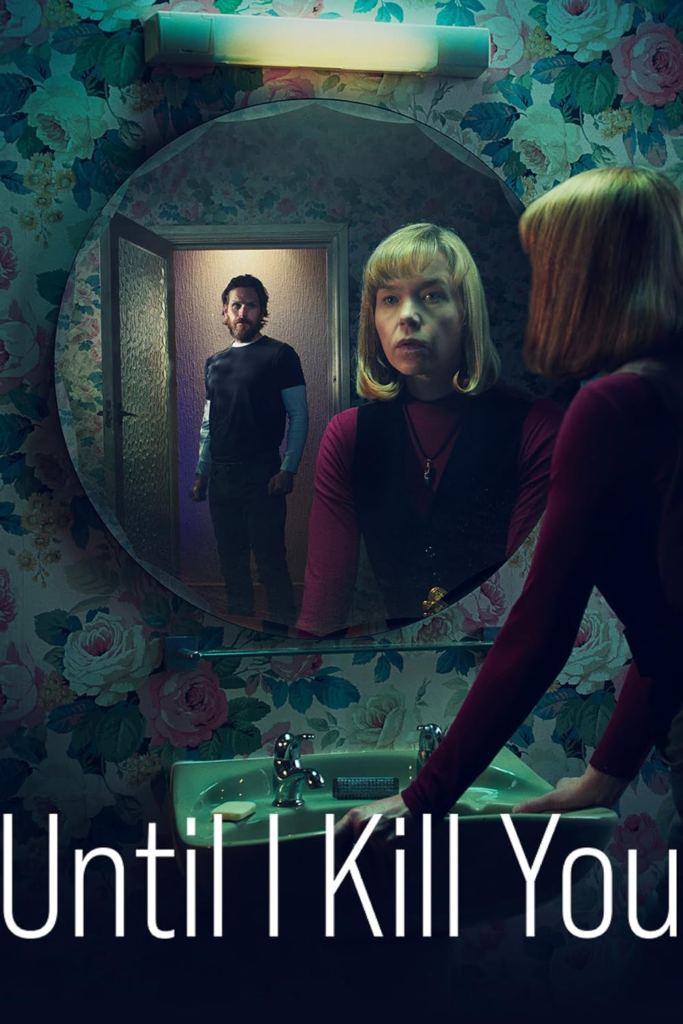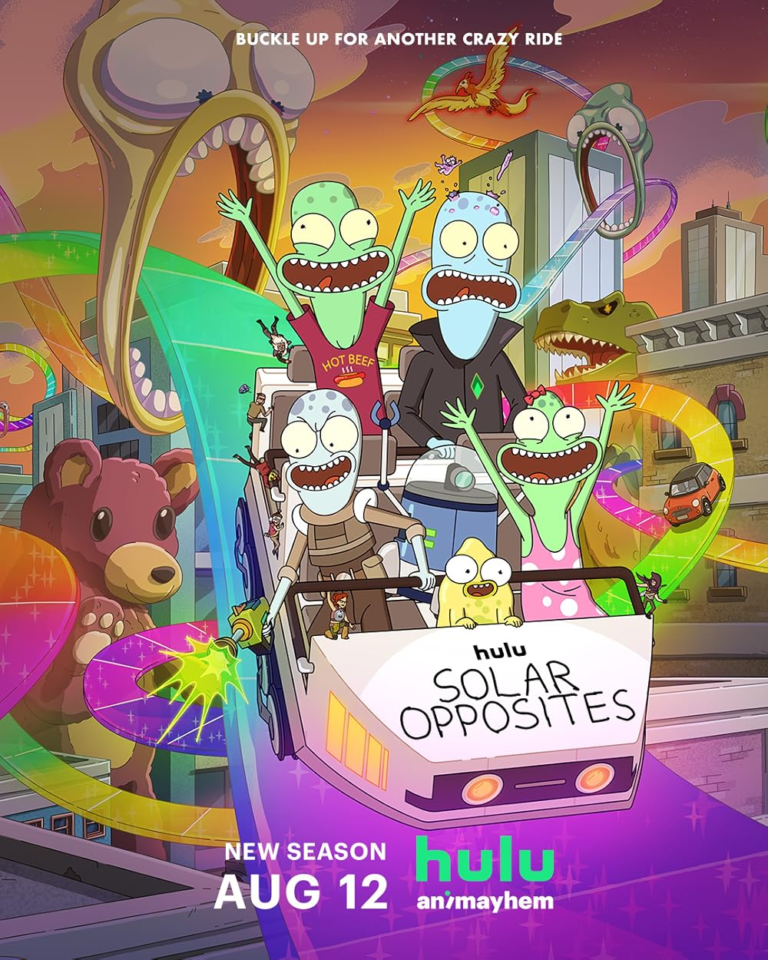Until I Kill You Christian Review

If there’s one series that takes the complexity of trauma and the messy road to survival and puts it squarely in front of you, it’s Until I Kill You. This isn’t the kind of drama that wraps up neatly or gives you the satisfaction of clear-cut justice. Instead, it’s an intense exploration of the psychological effects of coercive control and male violence, following Delia, a woman whose life slowly unravels in the grip of an abusive relationship. It’s the kind of story that lingers long after the screen fades, forcing you to sit with the discomfort and weight of what you’ve seen. And while it’s sometimes uneven in its pacing and storytelling, that rawness might be exactly what makes it feel so real and unsettling.
An Uncomfortable but Necessary Journey: The Story of Delia
The central figure here is Delia, a woman whose initial freedom and independence are gradually stripped away by the coercive control of her partner, played by Evans. His character doesn’t come across as monstrous at first. He’s soft-spoken, seemingly harmless, almost like the sort of man who fades into the background. But as the story unfolds, that harmless façade peels away, revealing the ugly, terrifying depths of control and manipulation that trap Delia in an invisible cage. Maxwell Martin, who plays Delia, conveys a journey from subtle unease to outright fear and desperation, capturing the essence of someone who realizes, all too late, just how dangerous her partner really is.
Until I Kill You doesn’t make this journey easy on the viewer. Delia’s struggles are hard to watch because they’re so heartbreakingly real. There’s no glamour here, no high-stakes action that pulls you out of the horror of her situation. Instead, we’re faced with the slow-burn nightmare of a person slowly losing her autonomy, bit by bit, until she feels trapped in a life that’s no longer her own. It’s a narrative that doesn’t rush, and while that can sometimes make the pacing feel off-kilter, it adds to the story’s realism. Trauma, after all, doesn’t unfold on a predictable timeline, and neither does Delia’s story.
The Human Cost of Violence: A Christian Perspective on Delia’s Struggle
From a Christian viewpoint, Delia’s story is a tragic example of humanity’s brokenness. The series portrays the devastating impact of one person’s cruelty on another’s life, exposing the painful truth that violence leaves deep, lingering scars on the spirit. Watching Until I Kill You, it’s easy to feel the weight of empathy for Delia—her journey is a reminder that even in the darkness of suffering, every life remains valuable and worthy of compassion.
For those of faith, Delia’s story brings forward a challenge: how can we support survivors of trauma who bear these kinds of invisible wounds? How do we make room for the messy, often uncomfortable process of healing that doesn’t follow a tidy path? This series seems to quietly ask us to hold space for people like Delia, offering grace and patience, recognizing that their stories are filled with setbacks and uncertainties.
Not Just Another Crime Drama: Unearthing Complexity in Victimhood
What sets Until I Kill You apart from typical crime dramas is its willingness to grapple with victimhood’s complexities, avoiding the usual tropes and conventions of true crime storytelling. Many shows, even in the true crime genre, tend to box up these kinds of stories, providing audiences with a clear resolution or a moment of satisfaction. But Delia’s story resists these easy conclusions. It’s fragmented, moving through months or years with no clear resolution in sight. There’s no one moment of closure here; rather, it’s a journey of survival, of living through trauma and somehow finding the strength to move forward, even if only inch by inch.
Screenwriter Nick Stevens, known for his work on The Pembrokeshire Murders, brings a nuanced approach to this story, avoiding the typical villainization that often reduces abusive partners to one-dimensional figures. Instead, he focuses on the more insidious aspects of control, manipulation, and coercion, making the dynamic between Delia and her partner both chilling and heartbreakingly realistic. The result is a portrayal of abuse that feels honest, even if that honesty makes it difficult to watch.
In an age where many series shy away from anything that might offend sensibilities, Until I Kill You takes the bold step of confronting its viewers with the unsettling reality of abuse. It’s not a comfortable watch, nor does it pretend to be, and that’s precisely what makes it so powerful.
The Legacy of Pain: When Trauma Refuses to End
The structure of Until I Kill You reflects the disorderly nature of trauma, hopping from one moment in Delia’s life to another without following a clear or linear timeline. This choice might make the story feel fragmented, even jarring at times, but it adds to the authenticity of Delia’s experience. Trauma doesn’t follow a script, and neither does this series. It’s messy, uncomfortable, and refuses to be easily categorized. For those who may have experienced trauma, this disjointed narrative might resonate deeply; it reflects how memories and pain can jump out at unexpected times, never allowing a clear resolution.
One of the most powerful aspects of this series is how it challenges common perceptions about trauma and healing. Society often expects survivors to “move on,” to “find closure” and put the past behind them. But Until I Kill You doesn’t offer these tidy conclusions. Instead, it shows the reality of life after trauma—where pain, fear, and resilience coexist, and where the road to recovery is anything but straightforward.
Faith in the Face of Darkness: Seeking Hope Amid Suffering
From a Christian perspective, Until I Kill You might feel bleak, but it also serves as a poignant reminder of the need for compassion and grace, especially toward those whose scars aren’t visible. It’s a call to understand that healing isn’t always immediate or even complete. Delia’s journey isn’t about triumph or a return to normalcy; it’s about survival, about finding hope in the smallest of victories, and learning to live with a past that won’t fully disappear.
This series, in a way, embodies the Christian call to walk alongside those who suffer, even when their journey is messy and seemingly endless. Delia’s story isn’t one of clear redemption, but it reminds us that God’s love is steadfast, present even in the darkest of places. As viewers, it prompts us to examine our own capacity for empathy and our willingness to stand with those enduring long battles.
Final Reflections: A Tough but Impactful Watch
At its core, Until I Kill You is about the enduring spirit of those who survive abuse and the importance of understanding the complexity of victimhood. It’s not for everyone; the series pulls no punches in its portrayal of trauma, and some may find its rawness difficult to process. But for those willing to engage with it, it offers a compelling, albeit heavy, experience that challenges societal narratives about abuse, survival, and what it means to live with lasting scars.
I’d give Until I Kill You a 7.5 out of 10. It’s not a show that aims to entertain in the usual sense. It’s thought-provoking, uncomfortable, and deeply empathetic, pushing viewers to think differently about those living with trauma. While its pacing and structure might feel disjointed, that very unevenness captures the reality of Delia’s experience, creating an authenticity that’s hard to find in typical crime dramas.
In the end, this series leaves you with more questions than answers, but maybe that’s the point. Healing is rarely straightforward, and Until I Kill You doesn’t pretend otherwise. It’s a story of survival and the resilience of the human spirit, a reminder that every story of suffering is unique and deserving of our understanding. It challenges us to hold space for those who carry invisible scars, even when their journey is difficult and far from resolved.




